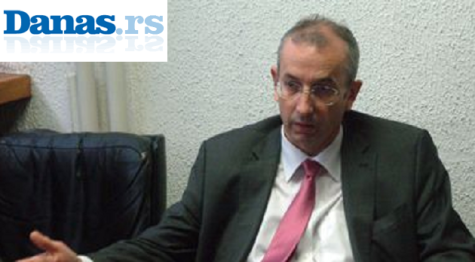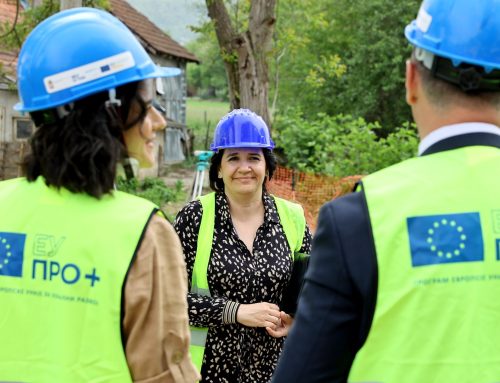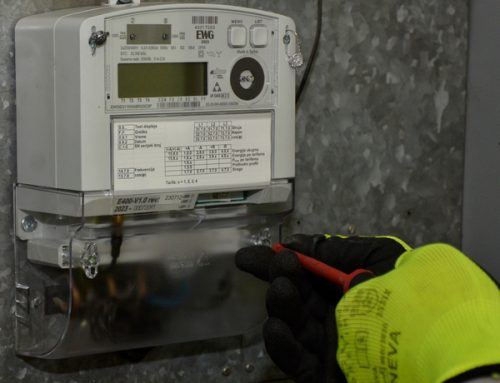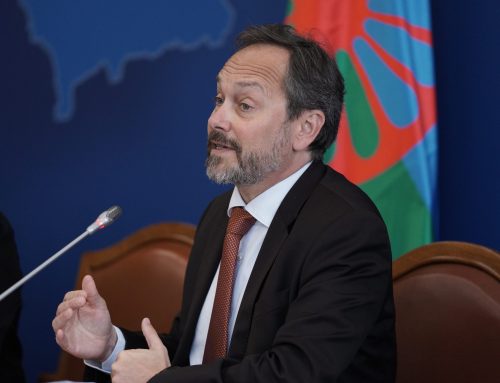Serbia’s EU accession negotiations formally started a year ago in Brussels. Since then, much work has been done in terms of preparing negotiations of specific chapters and launching the key reforms. Such a momentum and level of ambition should be maintained in order for EU Member States to open the first chapters in 2015. Last year, the Government adopted numerous reform laws and several good action plans. Now it is time to implement what has been written on the paper; we all hope and expect 2015 to be the year of implementation. Reforms should start to show results that would help the recovery of economy so that, by the time next Annual Progress Report on Serbia is published, everyone can feel the effect of reforms without the need to read the Report – the Head of the EU Delegation to Serbia Michael Davenport told Danas daily newspaper in an interview.
Q: Following his last meeting with you on Tuesday, Prime Minister Vucic said that your shared conclusion was that 2015 would be “crucial for Serbia and its progress”. What are your expectations regarding Serbia’s accession process – compared to previous years, how will 2015 be different?
A: Prime Minister and I share the opinion – 2015 will offer great possibilities for Serbia’s key progress on EU path. During our first 2015 meeting, Prime Minister and I had a positive exchange of views on numerous topical issues: new round of dialogue in Brussels in February, negotiating chapters, political and economic stability in the region, as well as economy reform, including restructuring of state-owned enterprises. We also discussed Government efforts to restore the sustainability of Smederevo steel mill. Therefore, as you may see, our joint 2015 agenda is huge and includes priorities such as rule of law, notably action plans for chapters 23 and 24, fight against corruption and discrimination and implementation of media laws. EU is by far the biggest Serbian partner in a widest possible range of areas. Around 70 per cent of Serbian exports go to EU market, EU Member States are certainly the biggest investors in Serbian economy. Every year, we allocate some 200 million euros, in the form of grants, out of IPA funds to finance the reforms in priority areas of the pre-accession process, but for other purposes as well. In 2014 and 2015, the most prominent and recognisable segment of the EU assistance was the one in removing the flood-inflicted consequences, that is efforts to move people back into their homes, reconstruct schools, kindergartens and water supply systems, restore production of agricultural producers and hundreds of small, family-run enterprises. The work does not end here: additional 62 million euros were allocated for this activity, which will now comprise the prevention of similar disasters.
EU and its Member States provide Serbia with practical support and finance improvements in numerous sectors: from education and justice, to bridges, energy, environment, as well as social inclusion, self-governance, media, culture and economy. Prime Minister is fully aware of what EU does for the benefit of Serbia, and in the period ahead, much more needs to be done with joint efforts applied. We should not allow certain things distract us from the work ahead. As Prime Minister put it, that was our first meeting in 2015, but such meetings are held regularly. This is but one example of profound cooperation between EU and Serbia.
Q: In your opinion, will Serbia be able to further align its policy towards Russia with the one of the EU in 2015?
A: It is important to understand why the EU has imposed sanctions on Russia. This was our response to Russia’s illegal annexation of Crimea, which represents a clear violation of international law, as well as the continuous destabilisation of neighbouring, sovereign Ukraine. EU and other international partners applied targeted measures to specific sectors of the Russian economy. These measures are part of the two-way approach, along with diplomatic initiatives aimed at finding a negotiated solution. Negotiating framework sets out a legal requirement concerning progressive alignment of Serbian position with the one of the EU, even in the case of serious issues such as sanctions and this segment is very important. We expect Serbia to comply with obligations. Serbia is the only one that could offer an answer to your question through internal social dialogue. For Serbia, this is not a simple matter, and we are aware that the said social dialogue has not ended yet. The whole time we have been saying that it is a gradual process, implicating an ever growing alignment with EU’s position, and not only in relation to Russia. Serbia itself said that EU membership represented its key strategic goal, and such a commitment was clearly reiterated by Prime Minister Vucic during President Putin’s visit in October.
Read the full interview here.




